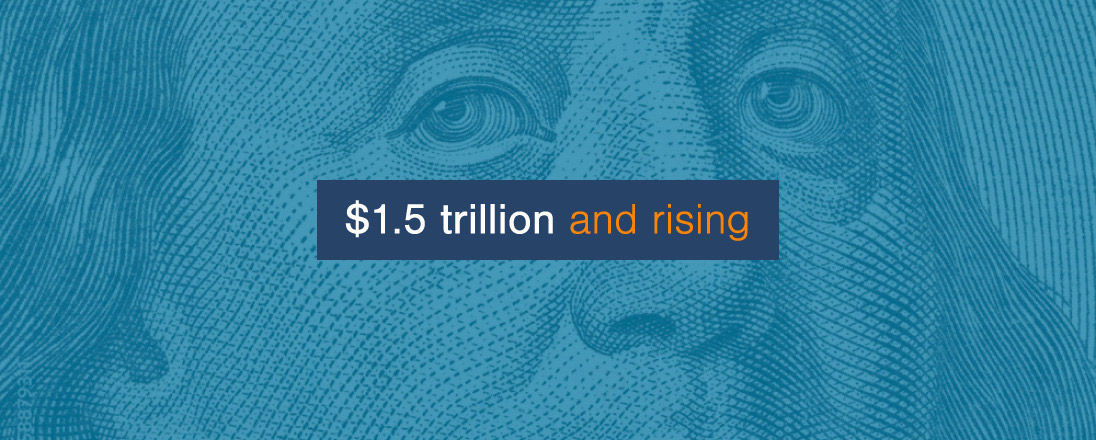How does the federal deficit impact you?
Because money doesn’t come with instructions.®
Article published: October 03, 2024

This Q&A is based on questions we receive from clients, just like you. Have a question that involves a dollar sign? Share it! Our planners and subject matter experts will help answer them in upcoming issues of Inside Personal Finance. Send us your questions here.
Q:
How does the growth in the federal deficit impact us? What does it mean in the short term and long term? Ultimately, I’m not just asking for me, but for my children and grandchildren.
A:
The federal government is indeed spending more than it's earning in revenue. As of July 2024, the national deficit stood at $1.5 trillion, and it could grow even more.
According to the U.S. Treasury Department: “Since 2001, the federal government’s budget has run a deficit each year. Starting in 2016, increases in spending on Social Security, health care, and interest on federal debt have outpaced the growth ofĚýfederal revenue.”
Here’s how that will affect us.
Ěý
Higher borrowing costs and national security
As a result of its deficit, the federal government must help finance its operations using debt. The national debt stands at a staggering $35.3 trillion.
The rising national debt may reach a tipping point, whereby, investors will start to get concerned enough about U.S. fiscal health to demand higher interest rates. The government could be forced to spend less on defense if its borrowing costs were to increase markedly. That’s one of the reasons pundits and politicians say the rising national debt creates a national security issue. Moreover, higher rates would also mean higher borrowing costs for not just the government but for us.
Ěý
Taxes and government programs
As vast and as complex as the federal government is, one solution to the federal deficit is clear and reflects a basic principle of financial planning that many of us are very familiar with: Don’t spend what you can’t afford.
When you need to rightsize your budget, you and your planner discuss ways to manage your expenses and income. The government needs to do the same.ĚýĚý
It could increase its income through taxes – by trying to get taxes owed by people who don’t pay; closing tax loopholes used by companies and the uber rich, like the more than 800 billionaires in the U.S., and/or raise taxes on the rest of us. It can also figure out ways to help America grow its income through economic growth.
Or the government could lower expenses by reducing departmental funding for the military, education, Veterans Affairs, energy or you name it. Another route is the government can implement a combination of expense reduction and income growth.
Ěý
What you can do
Obviously, solving the national deficit is beyond your financial plan, but you’re not powerless to help, nor are your children or grandchildren, if and when they’re old enough to vote. Voting for policies that you think will help decrease the deficit is a way you can be a part of the solution. It’s also our right as citizens.
Ěý
WE HOPE YOU’VE FOUND THIS INFORMATION HELPFUL
Remember that any financial guidance must be adapted to your unique circumstances, so consult your financial planner. In the meantime, keep those questions coming!
AM3839506


